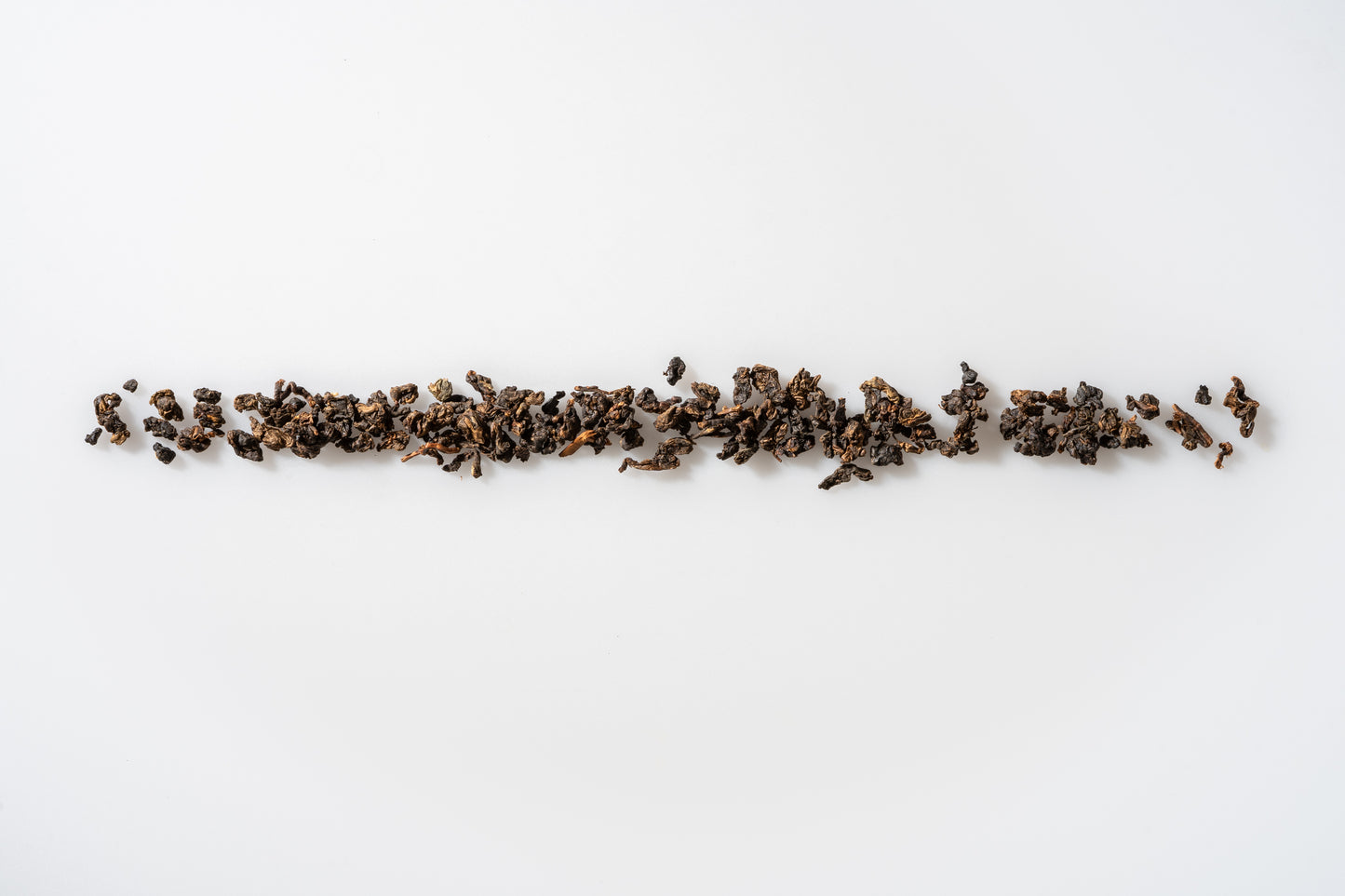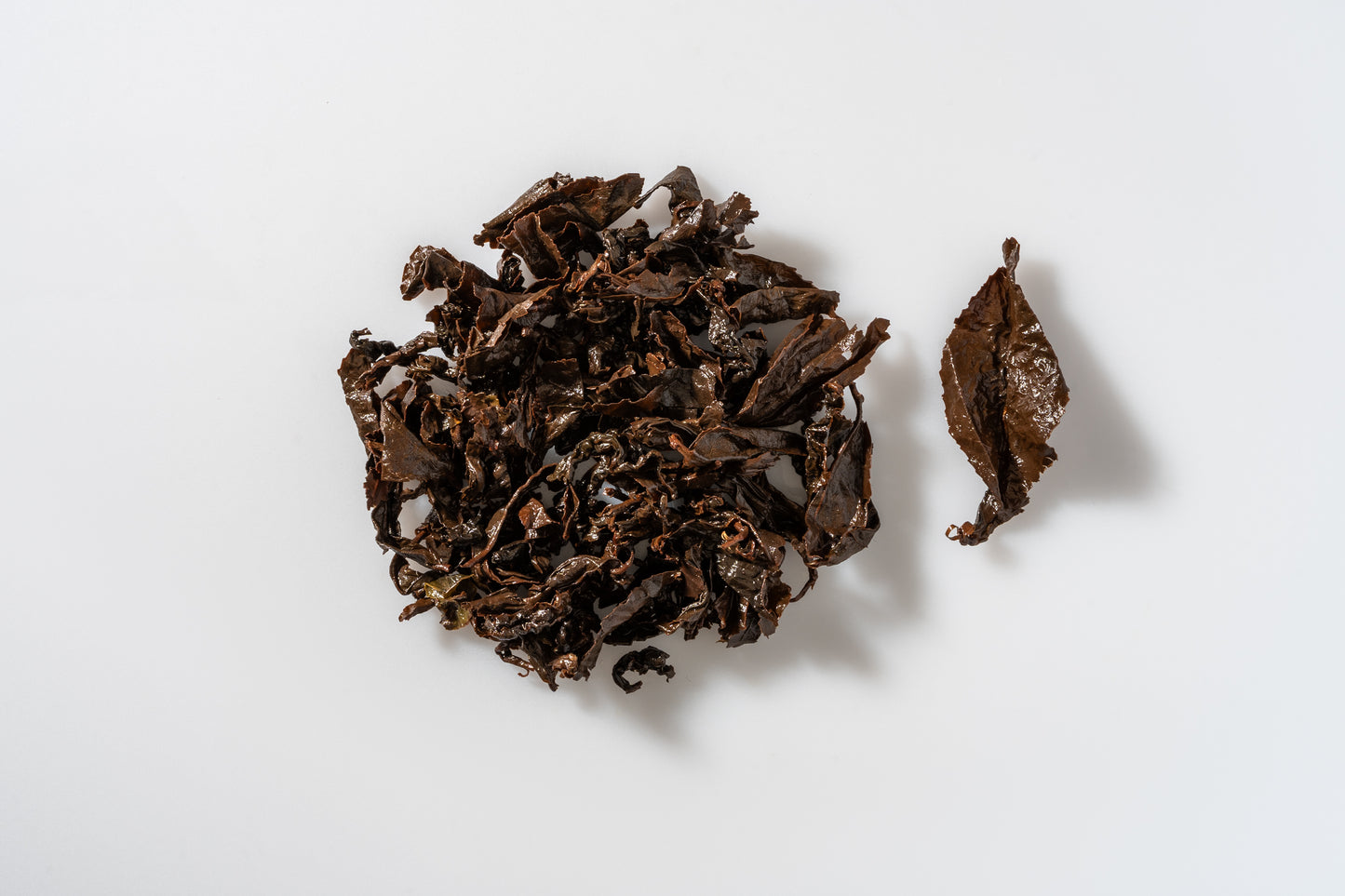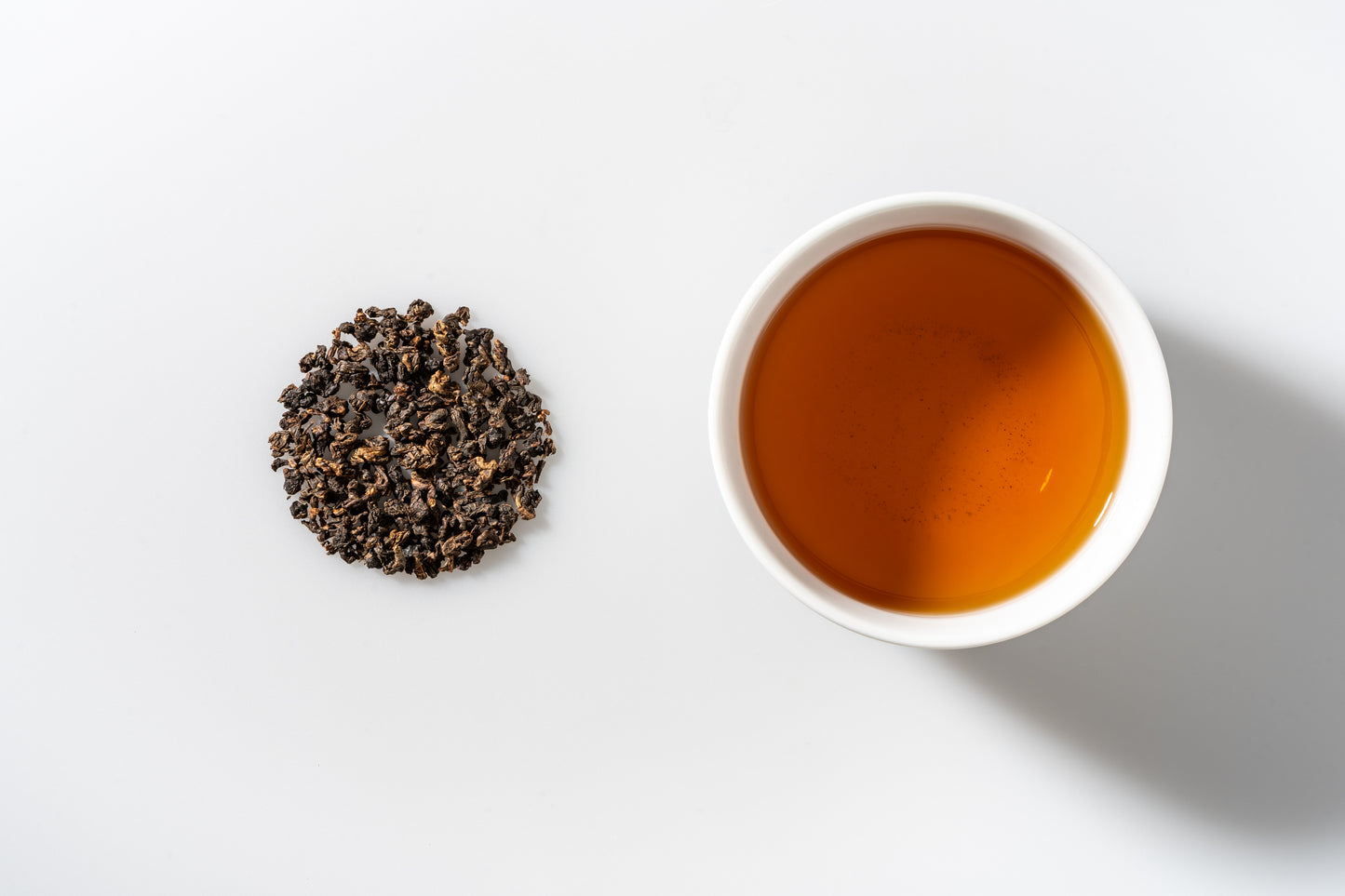teafriend
Resting Tiger
Resting Tiger
Resting Tiger is produced using Taiwan's earliest Oolong tea method, known as "Fan Zhu Oolong." This tea undergoes a process of heavy withering, heavy stirring, and high oxidation, allowing the tea leaves to retain a sweet and ripe fruit aroma while maintaining the full-bodied flavor of black tea. Taiwan's record of tea exports dates back to around 1865 when tea was exported through Western trading companies to foreign countries. At that time, Taiwanese people referred to Westerners as "Hong Mao Fan" (meaning Red-haired Foreigner), and thus, the exported tea was called "Fan Zhu Tea" or "Fan Zhu Oolong." In foreign markets, it is also known as "Formosa Oolong Tea."
Today, this traditional flavor has undergone minor adjustments in the production process. The tea leaves are first processed into a semi-ball shape using a tong qiu machine, and then precision-roasted to achieve a refined flavor.
Couldn't load pickup availability
Share



-
Tea Identity
Origin: Tao Yuan, Taiwan
Cultivar: Jin Xuan (TTES. No.12)
Harvest: October,2023
Partial-Oxidation Level: Heavy
Roast Level: Medium
Farming Method: Conventional -
How to Store Properly
Store tea in airtight containers such as ceramic, glass, or tin with tight lid. Avoid using plastic containers. Store it in a cool, dark, dry place and keep it away from moisture.
Tea shelf life : 6 months after opening -
Brewing Suggestion
Tea amount: 6 g
Brewing times: 6 times
Hot Brew: 100℃, 600ml, 3-5 min.
Cold Brew: 40℃, 600ml, 6-8h
Gong Fu: 100℃, 150ml, 60/30/45 sec
-
More about Resting Tiger
The production method of Resting Tiger is Taiwan's earliest Oolong tea, which we call "Fan Zhu Oolong". It is made by a process of heavy withering, heavy stirring, and heavy oxidation, which allows the tea leaves to retain a sweet and ripe fruit aroma while still maintaining the full-bodied flavor of black tea. Taiwan's record of tea exports dates back to around 1865, when tea was exported through Western trading companies to foreign countries. At that time, Taiwanese people referred to Westerners as "Hong Mao Fan" (it means Red-haired Foreigner, and therefore, the exported tea was called "Fan Zhu Tea" or "Fan Zhu Oolong". This is also known as "Formosa Oolong Tea" in foreign markets.
Today, this traditional flavor has undergone some minor adjustments in the production process. The tea leaves are first processed into a semi-ball shape using a tong qiu machine(桶球機), and then precision-roasted to achieve a refined flavor.




